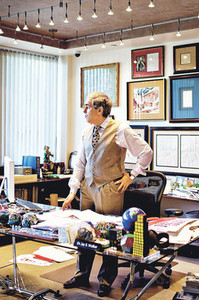(p. A1) The Marxist Internet Archive, a website devoted to radical writers and thinkers, recently received an email: It must take down hundreds of works by Karl Marx and Friedrich Engels or face legal consequences.
The warning didn’t come from a multinational media conglomerate but from a small, leftist publisher, Lawrence & Wishart, which asserted copyright ownership over the 50-volume, English-language edition of Marx’s and Engels’s writings.
To some, it was “uncomradely” that fellow radicals would deploy the capitalist tool of intellectual property law to keep Marx’s and Engels’s writings off the Internet. And it wasn’t lost on the archive’s supporters that the deadline for complying with the order came on the eve of May 1, International Workers’ Day.
. . .
(p. A4) . . . the libertarian Cato Institute enjoyed teasing its ideological adversaries with an I-told-you-so blog post titled, “Because Property Rights Are Important.”
. . .
The publisher . . . tried to turn the tables on its critics, questioning whether it was indeed radical to believe that there is no ownership of content produced through hard work, like the mammoth translation and annotation of Marx’s and Engels’s work, a project initially directed by the Soviet Union in the late 1960s that took some 30 years of collaboration among scholars across the world.
In a note on its site, Lawrence & Wishart said its critics were not carrying on the socialist and communist traditions, but reflecting a “consumer culture which expects cultural content to be delivered free to consumers, leaving cultural workers such as publishers, editors and writers unpaid, while the large publishing and other media conglomerates and aggregators continue to enrich themselves through advertising and data-mining revenues.”
For the full story, see:
NOAM COHEN. “Claiming a Marx Copyright? How Uncomradely.” The New York Times (Mon., May 1, 2014): A1 & A4.
(Note: ellipses added.)
(Note: the online version of the story has the date APRIL 30, 2014, and has the title “Claiming a Copyright on Marx? How Uncomradely.”)








